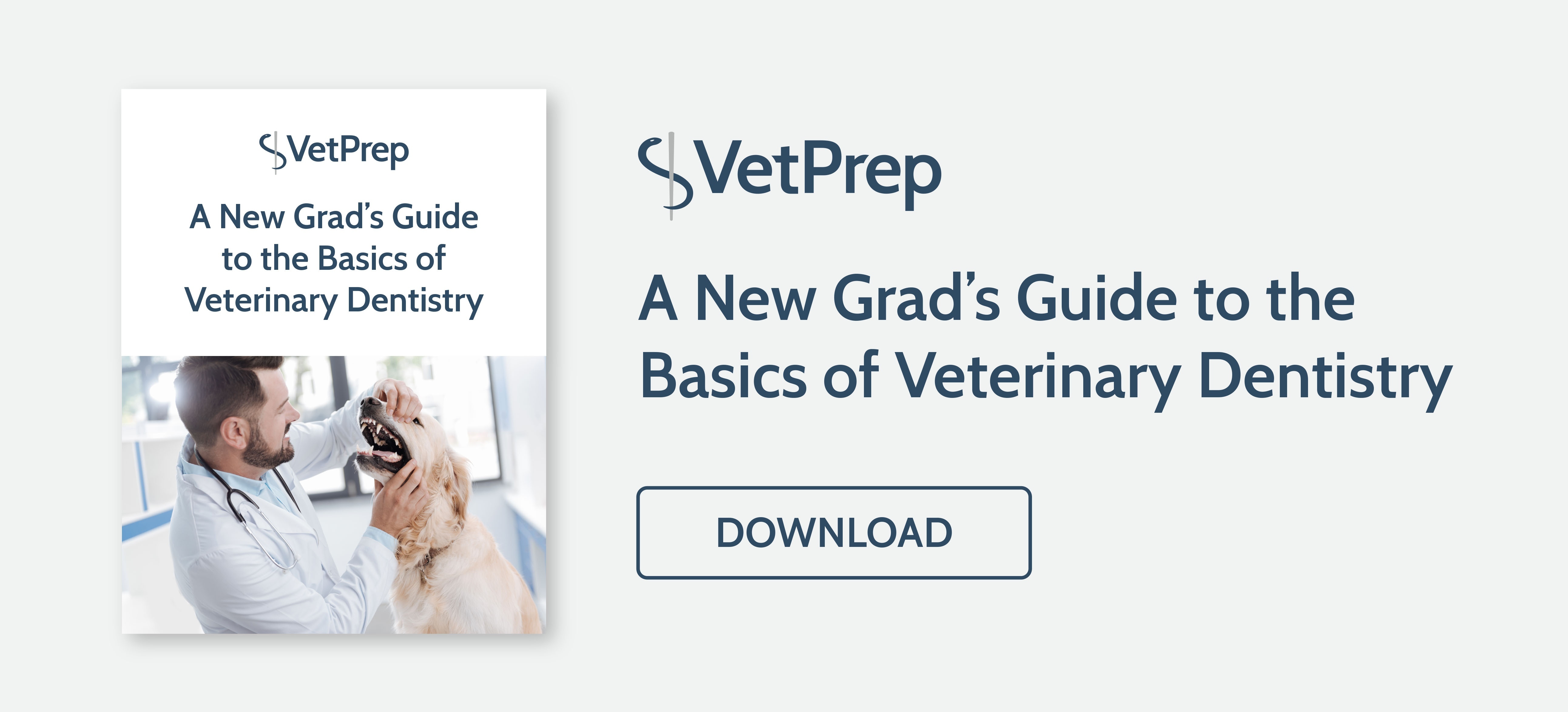
There’s no denying it: dentistry is an important part of small animal preventive medicine. If you find yourself in small animal practice after veterinary school, client education regarding dental disease will probably occupy a significant portion of your workweek.
In some patients, the need for a dental cleaning is readily apparent. The client may complain that their pet has foul breath, difficulty eating, or visibly loose teeth.
Maybe you lift the patient’s lip during your exam and everyone in the room gasps at the sight of heavy plaque and tartar accumulation, as well as the presence of red, inflamed gums. In these cases, client communication is typically pretty straightforward.
More often, however, the client is unaware of their pet’s dental disease until you address it. These cases can be more challenging, because clients often ask themselves (and you!) whether a dental cleaning is truly necessary.
“What do you think, Doc? Do we really need to put him under, at his age, just to clean his teeth?”
Yes, and here’s why.
Untreated dental disease can have a significant impact on the overall health of a pet. Bacteria in the oral cavity can spread via the bloodstream to other areas of the body, leading to a number of harmful effects.
-
 Heart Disease: Bacteria originating from the oral cavity can enter the bloodstream and adhere to the valves of the heart. This leads to endocarditis, interfering with the function of the affected valve(s). Over time, this valvular insufficiency can lead to congestive heart failure.
Heart Disease: Bacteria originating from the oral cavity can enter the bloodstream and adhere to the valves of the heart. This leads to endocarditis, interfering with the function of the affected valve(s). Over time, this valvular insufficiency can lead to congestive heart failure. -
Kidney Disease: Bacteria from the oral cavity can travel directly to the kidneys, resulting in infection. Additionally, the chronic immune stimulation from dental disease can contribute to immune complex deposition in the kidneys and secondary glomerulonephritis. These two factors can contribute to an inability of the kidneys to effectively clear waste products from the bloodstream.
-
Liver Disease: Bacteria from the oral cavity can invade the liver, leading to changes that may be detected on bloodwork and visualized on liver biopsy.
A dental cleaning does far more than restore a pet’s fresh breath and pretty smile; it can have significant impacts on the pet’s overall health.



